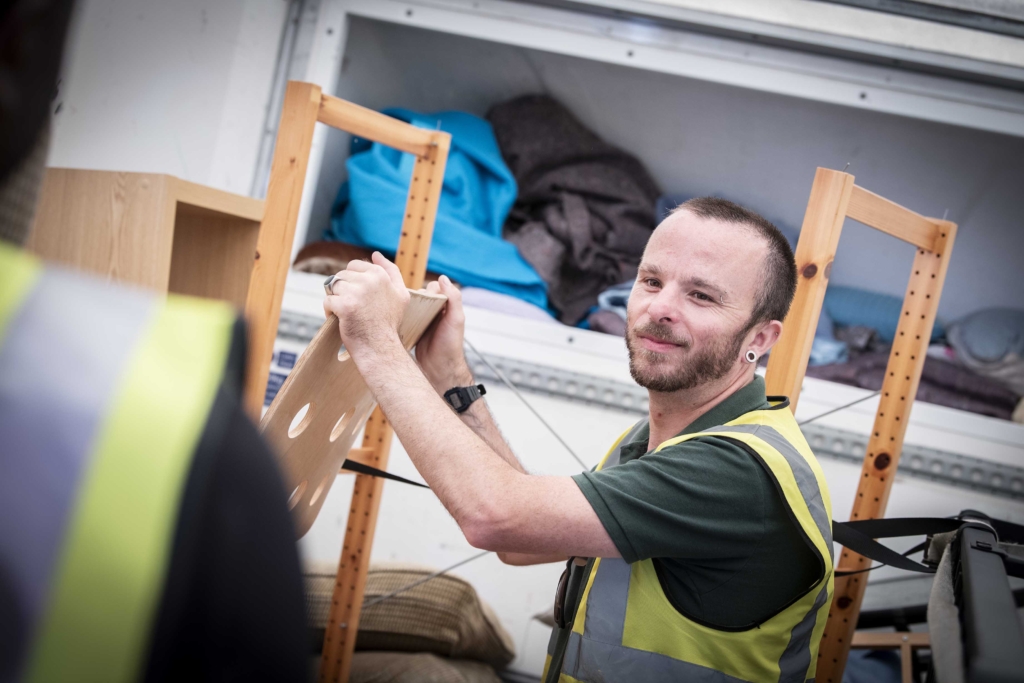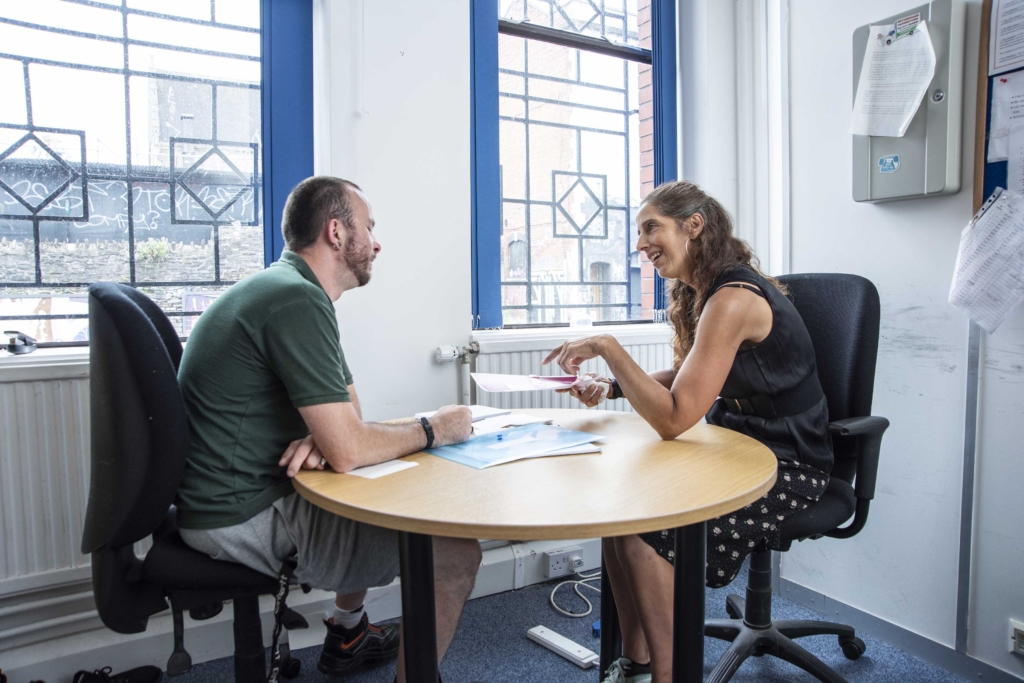A nomadic life

I’ve been a nomad my whole life. If you don’t know what a nomad is, the easiest way to describe it is basically a traveller. The Irish travellers, they are nomads with caravans. I’m a nomad without a caravan, travelling place to place, never staying anywhere long.
My mum is a nomad too. When I was growing up, she married a guy in Hell’s Angels, joined the fairgrounds, and travelled with different bikers. My nan was a nomad and so are my uncles. One of them ended up living in South Africa, another one is in America. It’s in my blood and I grew up travelling all over the place. As a kid it was unstable, always moving. But once you get into the motion of it, you get used to it and I loved it – for a little while anyway.
As I got older, it became a curse. I’m 36 now, and I’ve probably travelled for about 26 years of my life. Never staying anywhere long, maybe a few months at most. For me personally, I’d get depressed, down and suicidal if I stayed in one place too long. I always had to get up and travel again to make those feelings go away.
But the other side of it is that when I was travelling, I’d get depressed too. I’d think to myself – I don’t have a home, belongings or anything I can keep. That’s why it’s a curse. I couldn’t stand still, but I couldn’t stop travelling either. I was depressed either way, just for different reasons.
Ukraine experience
A few years ago, I went to Ukraine as a soldier. At first, I was on the border in Poland giving out parcels and later I joined the army through the Ukrainian embassy. It wasn’t for money; I was doing it as a volunteer.
Part of me did it because I’ve always travelled and I still wanted that adventure, but looking back, that was foolish. I’d played a lot of Call of Duty and I guess my young mind thought I’d be fine. Obviously, after I got there and bombs started falling, reality hit. I was in survival mode then and that completely changed me.
I did love the feeling of helping people though. I can remember one time – I was in Poland in my uniform waiting for the bus, and this little boy came up to me speaking Ukrainian. He put his arms around me, hugging me, and his mum was saying thank you, thank you. I was trying not to cry. With just that one hug, I was so glad I tried to do something to help.
After Ukraine, I struggled a lot. I don’t want to go into details, but as you can imagine, I saw a lot. Friends from my unit died and more were captured. We were literally in the middle of all the bombing. I’ve seen things that I will never forget.
So yeah, I was messed up. I thought about dying quite a lot, but I had my daughter, and she was my reason for carrying on. She changed my life and gave me purpose. Then coming to Emmaus Bristol bumped me up a little bit more, giving me another purpose for when I don’t see my daughter, which is why I love it so much.
Typical week at Emmaus
I’ve been at Emmaus Bristol for one year now. As I’ve got older, I’ve noticed that I like routine. My life was crazy before but now I live by and love my routines.
For example, on Fridays I leave Emmaus Bristol at 2pm to go see my daughter for the weekend. I stay with her until Sunday evening and get back around 7pm. I’m up at 6am every weekday – shower, breakfast, read of my bible, and video call my daughter to say good morning.
After that, I help at Emmaus Bristol. It depends on the rota, but I’m usually in the Stokes Croft shop. The first thing I do is open up, make coffee and then get on with anything that needs doing. I prefer working in the shop because I like helping people. If someone is looking for a specific item, I’m not just going to say, ‘oh it’s up there,’ I’m going to go with them to find it.
At the end of the day, I head back to the accommodation, speak to my daughter again, and I’m in bed by 10pm.
Support at Emmaus
The support at Emmaus is amazing and I love the support team. There’s a nice community feeling here – it’s like a big dysfunctional family in a way. It’s not all professional and strict either. We joke and wind each other up, have a laugh and can get on with all the managers.
When we’re in the shops, we can provide support to other homeless people who come in too. If anyone comes in who is homeless needing a pair of trousers, I won’t just get them trousers, I’ll get them shoes, sleeping bag, everything they need. We offer emotional support too – sitting down, giving someone a cup of tea or coffee, and talking about their story and how they got in that situation.
The number of people waiting for that chance to tell you their story is huge. I’ve been on the other end of that, so I know having that conversation changes your outlook more than most people would understand. You might make someone’s whole day or week with just one conversation or even give them the initiative to do something about their situation.

My own experience of homelessness
I’ve been homeless a few times, for long periods. I was in homeless hostels in London and other parts of the UK, and even in different countries across Europe.
The worst feeling is when you’ve got nowhere to go – no shelters open, no day centres, and you’re sat on the street in the pouring rain while people walk past, giving you dirty looks.
I’ve noticed that people, and I’ve done it myself before, often walk past homeless people and assume they must be on drugs or that it’s their own fault. It’s only when I was in that situation that my outlook changed. Now, I try to change other people’s perspectives when I can.
What’s next?
I don’t struggle with depression now. Since having my daughter and joining Emmaus, I’ve had the odd day where I’ve felt really low but nothing like I used to. It passes after a few hours and I’m back to my normal, buzzing self again. It’s a huge difference.
I’m not thinking about moving on just yet. I’m in my routine, taking each day as it comes and not rushing anything. I have a level 4 Diploma in Retail Management and I do enjoy helping in the Emmaus shops, but for my future career I want something different. Something that helps people and changes their lives. I’m still taking some time to figure out what that is.
Key takeaway from my story
I want people to know that everyone’s got a story. Give everyone a chance and don’t judge people by what they look like or the image they’re showing you.
If you walk past someone who is homeless, say hi, have a chat and take some time to get to hear their story. You’d probably be surprised.



